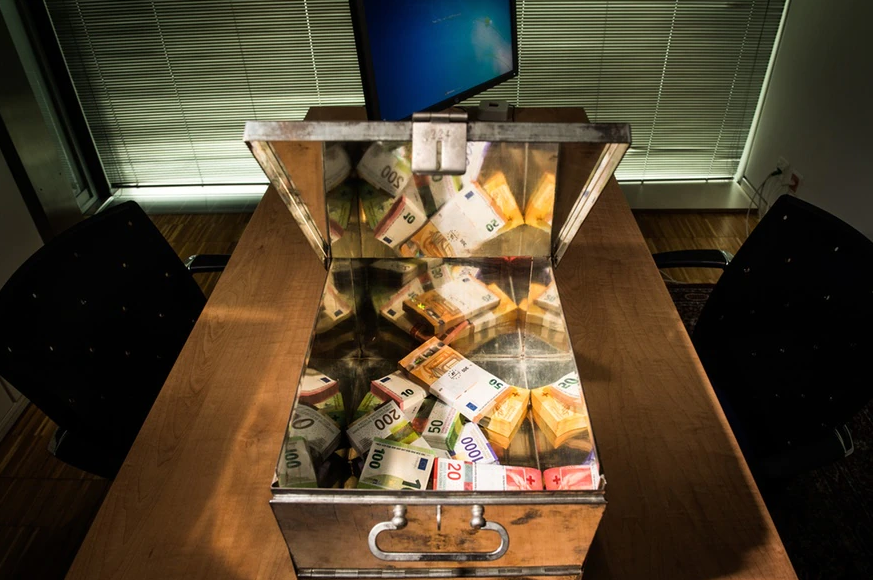
The threat of rampant inflation is forcing Swiss central bank to revise currency stance. © Keystone / Ti-press / Alessandro Crinari
Switzerland’s central bank is buying lower volumes of foreign currencies to support the franc as it balances the needs of exporters with the rising cost of goods.
The Swiss National Bank (SNB) shelled out CHF5.7 billion ($5.9 billion) in the foreign exchange markets in the first three months of the year. This amount is down from the CHF12.6 billion spent in the fourth quarter of 2021.
The SNB has been reducing the size of its interventions over the last few years. The CHF21.1 billion spent on foreign currencies in 2021 was significantly lower than the CHF110 billion the previous year when the Covid-19 pandemic was still causing significant problems in the Alpine state.
The latest statistics show that the accumulated pile of foreign currency reserves had dipped slightly to CHF959 billion at the end of May from CHF966 at the end of 2021.
On June 16, the SNB raised interest rates by half a percentExternal link in response the the growing inflation threat. But the benchmark rate still stands in negative territory at -0.25%.
“The current environment is subject to great uncertainty, also with regard to exchange rate developments,” said SNB chairman Thomas JordanExternal link at the time. “If there were to be an excessive appreciation of the Swiss franc, we would be prepared to purchase foreign currency. If the Swiss franc were to weaken, however, we would also consider selling foreign currency.”
“We will be observing the developments closely and are prepared to take the necessary measures in every situation to ensure price stability in Switzerland over the medium term.”
On June 30, the value of the Swiss franc was marginally higher than the euro. Market observers believe this marks a policy shift by the SNB, which is now confronted with the problem of keeping inflation under control.
Balancing act
While inflation rates in Switzerland are markedly lower than other parts of the world, the SNB has raised its Swiss inflation forecast for the full year to 2.9% – from an earlier forecast of 2.2% made in March.
The strong franc is one reason that Switzerland can keep rampant inflation at bay compared to rates of 8.6% in the United States and over 9% in Britain. This is because the increased purchasing power of the franc mitigates the rising cost of imports.
Credit Suisse economists expect further interest rate hikes this year and for the SNB to “most likely halt foreign currency purchases”, the banks said on Wednesday.
“However, reducing inflation through foreign exchange interventions does not seem realistic, in our view, as only a substantial appreciation of the CHF would have a large enough impact,” it added. The euro would have to drop to CHF0.80 against the franc to bring inflation down to below 2%.
Credit Suisse economists say that the last time the SNB sold off part of its foreign currency stockpile was at the end of 2019 and could be persuaded to repeat this policy if the euro exchange rate goes above CHF1.04.
On the other side of the coin, a strong Swiss franc is a problem for the Swiss tourism industry exporters who sell their goods outside of Switzerland.
Full story here Are you the author? Previous post See more for Next postTags: Business,Featured,newsletter
























